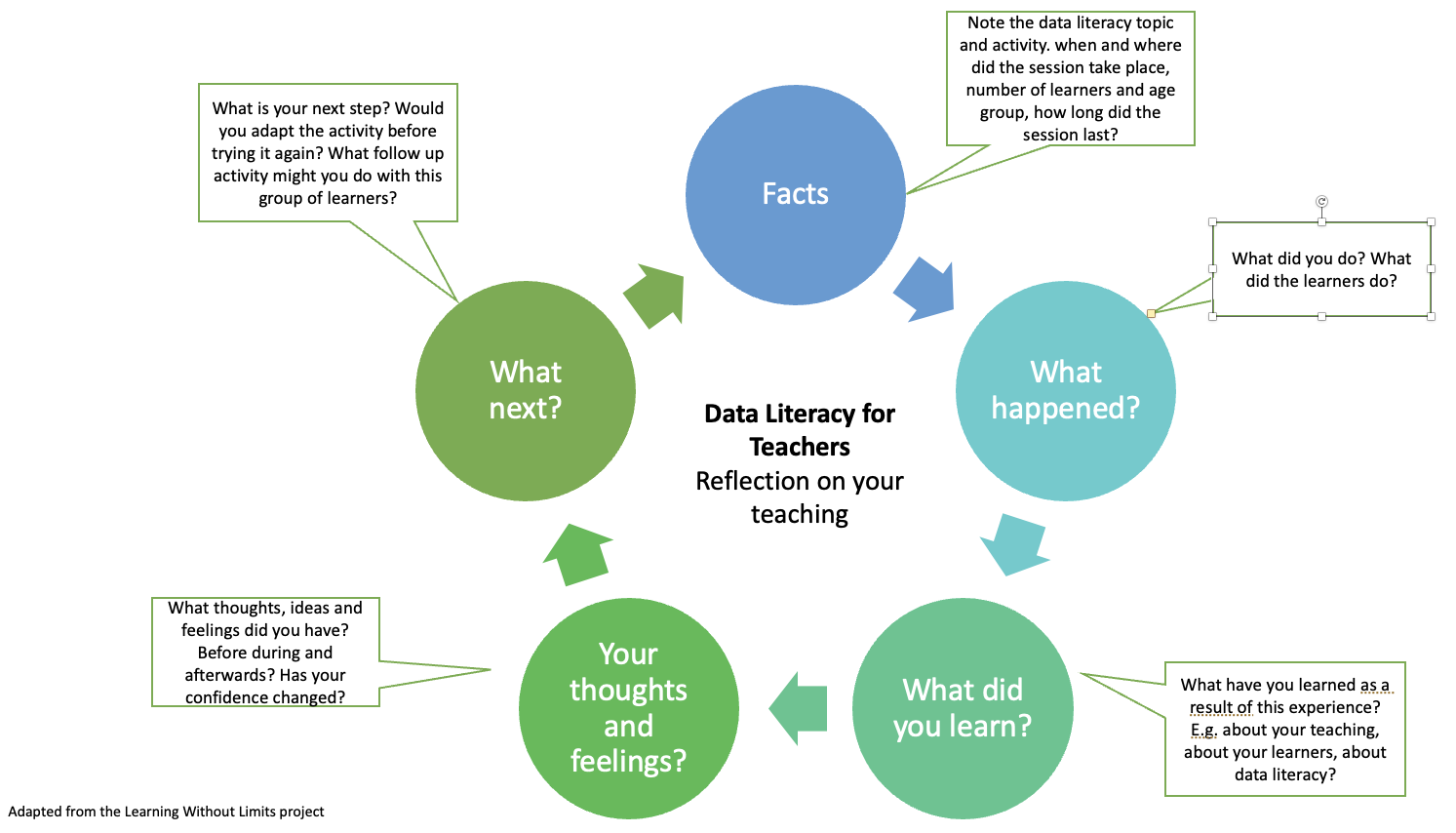Introduction and Problem Solving with Data
This class explains what data is, and why data literacy is so important. It introduces a data problem-solving cycle (PPDAC), which you can use to guide your learners through data projects. You'll also see some examples of why finding up-to-date data can change your worldview.
Preparation
Before you come to online class, please:
- Read pages 1-13 of the Teach Data Literacy Handbook
- Watch the Data 101 videos - 30 minutes
- Take the Factfulness quiz
Online class
Come to the online class on 21/2/24 at 7 - 9pm. We'll email you with the joining link.
Activity
After the class, try out one of these activities with your learners. You can choose from:
- Book review: use the book token in your kit box to buy a book about data literacy for your class to read. Ask your learners to review the book. Here are some books you might like to try, although feel free to find your own.
- PPDAC cards: Try out one of the Data Explorer card sets with your class. You can choose from birds, lost property, lego, and recycling plastics. It might be helpful to read pages 14-34 of the Teach Data Literacy Handbook to refresh your memory of each stage of the PPDAC cycle.
Reflection, feedback and sharing
Once you've tried out the activity with your learners, please do the following. There will also be a chance for feedback and sharing at the next class.
Reflective writing
Use the prompts to write a short post to help you reflect on how it went. It doesn’t need to be long (a few hundred words would be OK).

Facts: What was the topic and activity? Which learners took part, how many and what age group?
What happened? What did you do? What did the learners do? What did anyone else do?
What did you, as a teacher, learn? What have you learned as a result of this experience e.g. about teaching, your learners or about data literacy?
Your thoughts and feelings? What thoughts, ideas and feelings did you have before, during and after the session? Has your confidence changed as a result of teaching this activity?
What next? What is your next step? If you were to do this activity with another class, would you adapt it? What follow-up activity might you do with this class?
Feedback
Read the posts by two other members of the course and give them feedback.
Share
Tell another teacher at your school about what you have been working on.